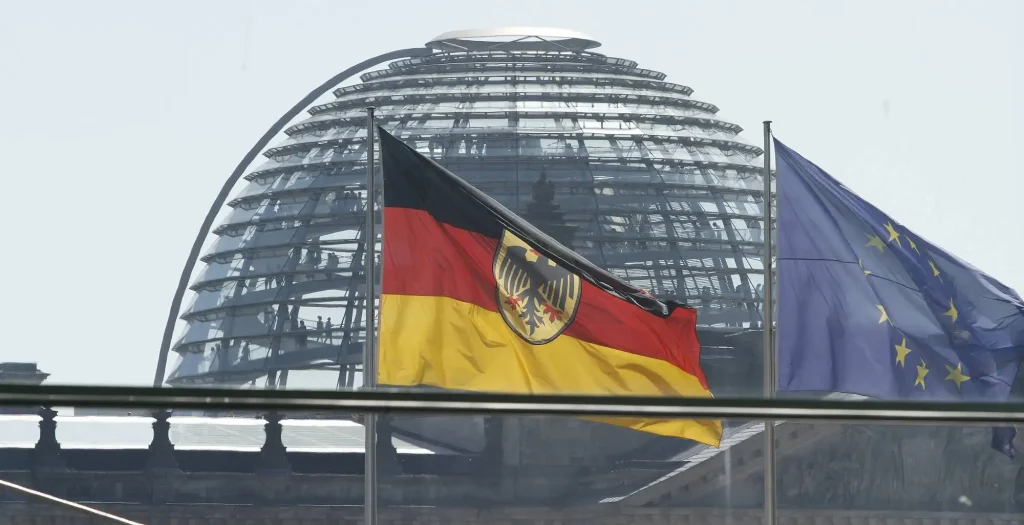Germany’s economy grew by 0.6% in 2019, marking its weakest expansion since 2013, according to Destatis, the federal statistics office. The growth, aligning with Reuters-polled economists’ forecasts, slowed from 1.5% in 2018 and 2.2% in 2017.
Despite marking a tenth consecutive year of growth—the longest in unified Germany—Destatis noted that “growth lost momentum in 2019,” primarily supported by consumption expenditure.
Sectoral Performance
The service sector saw gains, but industrial output declined significantly, hit by global trade tensions impacting Germany’s export-driven economy.
The domestic car industry faced challenges from slowing sales and a shift to greener vehicle production. Exports grew at a slower pace than in previous years, reflecting external pressures.
Narrow Escape from Recession
Germany narrowly avoided a technical recession in 2019, with third-quarter GDP growth at 0.1% following a 0.2% contraction in Q2.
The year’s sluggish performance, particularly in industry, underscores the challenges for Europe’s largest economy, traditionally a key driver of euro zone growth.
Fiscal Surplus and Policy Debate
Destatis reported a government budget surplus of €49.8 billion ($55.4 billion) in 2019, the eighth consecutive year of surplus, though lower than the €62.4 billion record in 2018. The weak growth has intensified calls for increased public spending to stimulate the economy.
Critics of Chancellor Angela Merkel’s coalition government argue its “schwarze Null” (black zero) policy, prioritizing a balanced budget, limits investment. French President Emmanuel Macron has labeled this approach a “budget fetish,” urging more fiscal flexibility.






